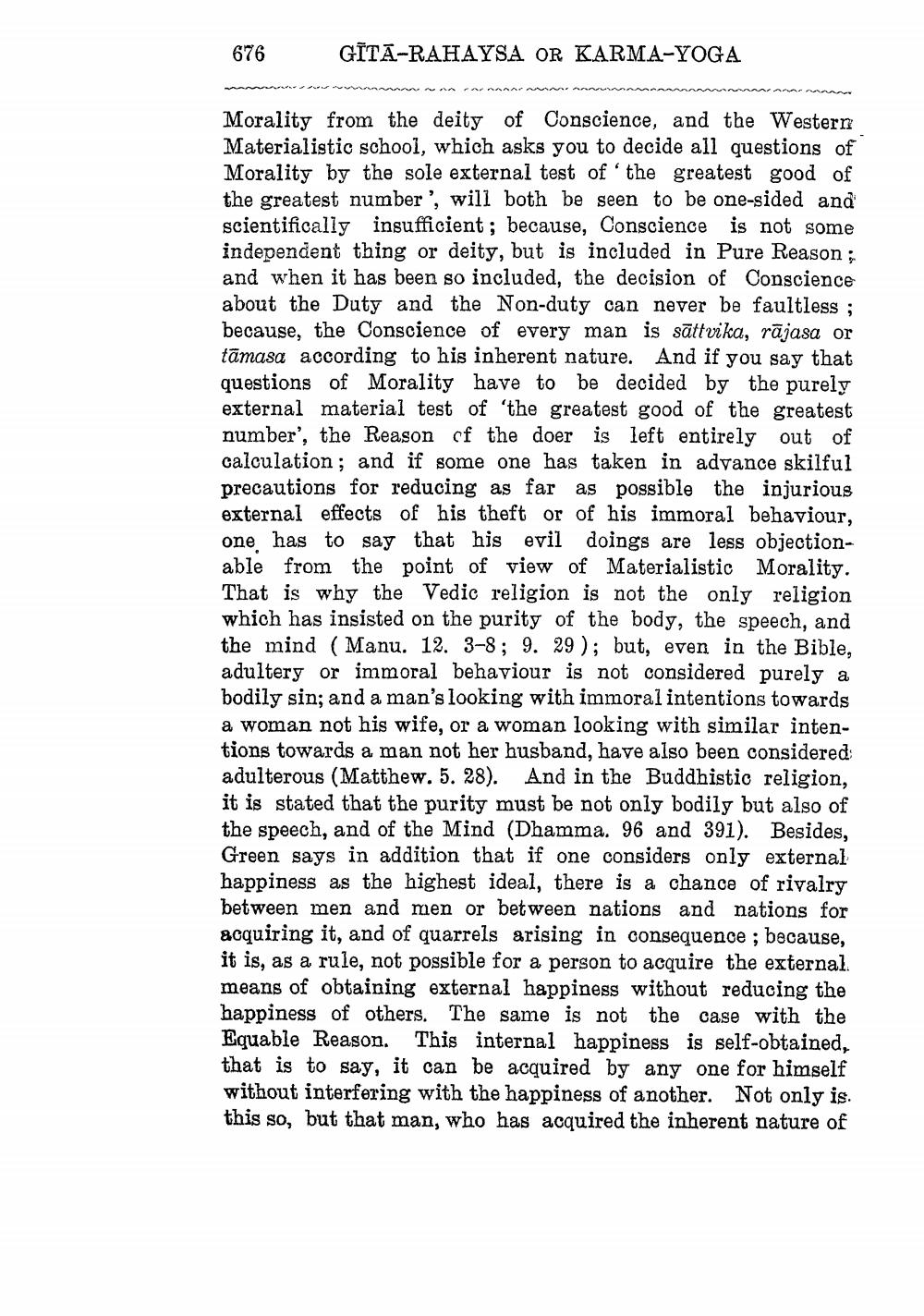________________
676
GITA-RAHAYSA OR KARMA-YOGA
^^^^ww.
Morality from the deity of Conscience, and the Western Materialistic school, which asks you to decide all questions of Morality by the sole external test of the greatest good of the greatest number', will both be seen to be one-sided and scientifically insufficient; because, Conscience is not some independent thing or deity, but is included in Pure Reason; and when it has been so included, the decision of Conscience about the Duty and the Non-duty can never be faultless; because, the Conscience of every man is sättvika, rājasa or tamasa according to his inherent nature. And if you say that questions of Morality have to be decided by the purely external material test of 'the greatest good of the greatest number', the Reason of the doer is left entirely out of calculation; and if some one has taken in advance skilful precautions for reducing as far as possible the injurious external effects of his theft or of his immoral behaviour, one has to say that his evil doings are less objectionable from the point of view of Materialistic Morality. That is why the Vedic religion is not the only religion which has insisted on the purity of the body, the speech, and the mind (Manu. 12. 3-8; 9. 29); but, even in the Bible, adultery or immoral behaviour is not considered purely a bodily sin; and a man's looking with immoral intentions towards a woman not his wife, or a woman looking with similar intentions towards a man not her husband, have also been considered adulterous (Matthew. 5. 28). And in the Buddhistic religion, it is stated that the purity must be not only bodily but also of the speech, and of the Mind (Dhamma. 96 and 391). Besides, Green says in addition that if one considers only external happiness as the highest ideal, there is a chance of rivalry between men and men or between nations and nations for acquiring it, and of quarrels arising in consequence; because, it is, as a rule, not possible for a person to acquire the external. means of obtaining external happiness without reducing the happiness of others. The same is not the case with the Equable Reason. This internal happiness is self-obtained, that is to say, it can be acquired by any one for himself without interfering with the happiness of another. Not only is. this so, but that man, who has acquired the inherent nature of




